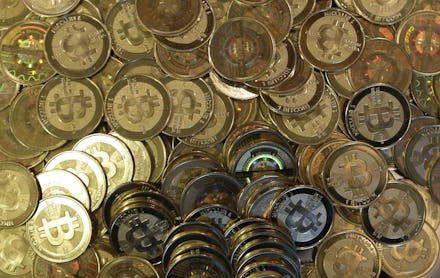Even China Can't Stop Bitcoin From Getting Big. Here's Why.

Bitcoin's price took another tumble on Wednesday, as China's largest exchange announced that it was no longer allowed to accept deposits. This comes on the heels of the Chinese Central Bank banning financial institutions from dealing in Bitcoin.
The ongoing regulatory drama in China precipitated another round of major price swings as speculators began running for the exit. As has been characteristic of similar episodes in Bitcoin’s short history, the naysayers have been keen to put in their two cents.
The criticisms, however, are surface level at best.
Many pundits remain fixated on Bitcoin’s dollar price and level of volatility. The argument seems to be that Bitcoin is too unstable to be useful as actual money. But the great Bitcoin vs dollar argument misses the bigger picture.
The real question to ask is if Bitcoin will be adopted as a technology, and that is something different from asking if it will be adopted as a currency.
As a network for clearing payments, Bitcoin is lower cost than anything out there. Transferring Bitcoins between different addresses is far quicker as well as less expensive than using standard credit card processors and a growing number of merchants have taken notice.
Bitcoin’s market share is still tiny compared to traditional payment processors, but it has grown considerably from the days when a Bitcoin could only get you Alpaca Socks.
Key to this growth have been businesses that make Bitcoin accessible to consumers and vendors alike. Coinbase — which just raised a cool $25 million in venture capital funding — helps merchants accept Bitcoin as part of their e-commerce platforms. It also offers exchange rate guarantees to give merchants the benefit of Bitcoin as a payments platform without the exchange rate risk of Bitcoin as a currency. Other startups like Bitpay offer similar services.
CoinCove is also trying to leverage Bitcoin as a global payments platform, but for a slightly different market. The company’s mission is to lower the cost of sending money to Latin America for immigrant workers abroad. What they came up with was to use Bitcoin as an intermediary to send value from one end of the globe to the other, bypassing more expensive middlemen. A worker in Spain can go to a local broker, exchange Euros for Bitcoin, send the Bitcoin to relatives in Columbia, and have those relatives exchange the Bitcoin back into Colombian pesos. Coincove plans to flesh out the infrastructure needed to make this possible.
People like to look at the speculation because it’s exciting; watching someone become a millionaire overnight is attention grabbing. In the same way, arguing about replacing the Fed tends to be more provocative than arguing about replacing SWIFT. This bias towards the dramatic makes us focus the discussion far too narrowly.
If we want to evaluate Bitcoin’s potential, we need think of it as something bigger than just a new form of currency. We need to think about the entrepreneurs leveraging it as a serious problem solving tool and not just the speculators looking to make a quick buck. If Bitcoin succeeds in any sense, it will be because of the former and in spite of the latter.